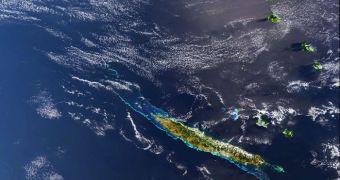Officials at the European Space Agency (ESA) announce that they have just inaugurated a new ground station, that will be in charge of serving the future Galileo satellite navigation system.
This is a critical milestone in the efforts Europe is putting into developing an alternative to the American-built Global Positioning System (GPS), which is currently providing all positioning services to countries on the Old Continent.
The US is providing highly-detailed GPS readings to its own military exclusively. Other states, and commercial and individual users get only a stripped down version of the system.
Europe, the Russian Federation and China have gotten tired of these limitations, and are now each building their individual satellite navigation systems.
ESA is making considerable headway with its Galileo system, having already achieved an impressive series of development milestone over the past couple of years.
The opening of this new ground station is one of them. The facility is located near the capital city of Nouméa, on main island of Grand Terre, New Caledonia.
This is one of the farthest facilities that ESA operated outside of Europe. Its main launch site, the Kourou Spaceport is also far away, in French Guyana, South America.
New Caledonia is a French-administered group of islands located in the southwest Pacific Ocean. Now it contains a ground station critical for the European space effort.
Galileo's global network of stations will have a critical role for the success of the mission. Its main task will be to oversee the individual satellites in the constellation.
This will in turn ensure the integrity of the signals being sent back to Earth. The stations will also keep an eye on the orbit of satellites in the constellation, signaling if improvements are needed.
“We are building up Galileo. This station is another stone in its construction. Another important part of Europe’s global navigation system is now ready,” explains René Oosterlinck.
He is the director of the Galileo Program and Navigation-related Activities at ESA. The official adds that French telecommunications company TDF is responsible for the site and its equipment.
The Nouméa site is currently awaiting its electronic equipment. This will take place very fast, given that the first two Galileo In-Orbit Validation satellites will launch next year.
They will take off earlier than mid-2011, aboard a Russian-built Soyuz delivery system. The will launch from the Kourou Spaceport.

 14 DAY TRIAL //
14 DAY TRIAL //